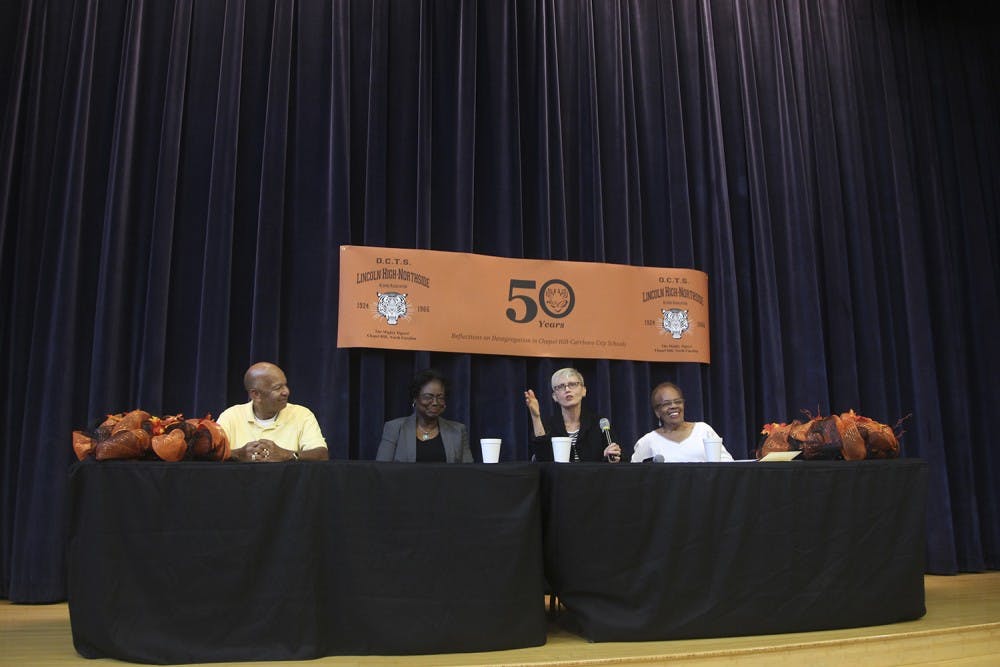On her first day at the newly integrated Chapel Hill Junior High School, she didn’t want to leave the car.
At school, the longtime Chapel Hill resident said she was spit on, tripped and called names.
“We black kids — we were not bullied — we were terrorized,” she said.
A forum at Northside Elementary School Saturday commemorated 50 years of desegregation in Chapel Hill-Carrboro City Schools, but it acknowledged that more work still needs to be done.
The forum was organized by the Lincoln High-Orange County Training School Alumni Association.
When Chapel Hill-Carrboro City Schools were desegregated in 1966, students from the all-black Lincoln High School were required to attend what is now Chapel Hill High School. Desegregation was a step toward inclusion, but it carried hardships of change and uprooted students and teachers from a comfortable environment — a common theme discussed at the forum.
Carolyn Daniels, panel member and one of the first students to graduate from the newly desegregated Chapel Hill High School in 1967, said she felt a deep sense of loss when Lincoln High closed.
“During my senior year, the saying ‘separate but equal’ comes to mind, which is one of the biggest lies I’ve ever heard,” she said.



